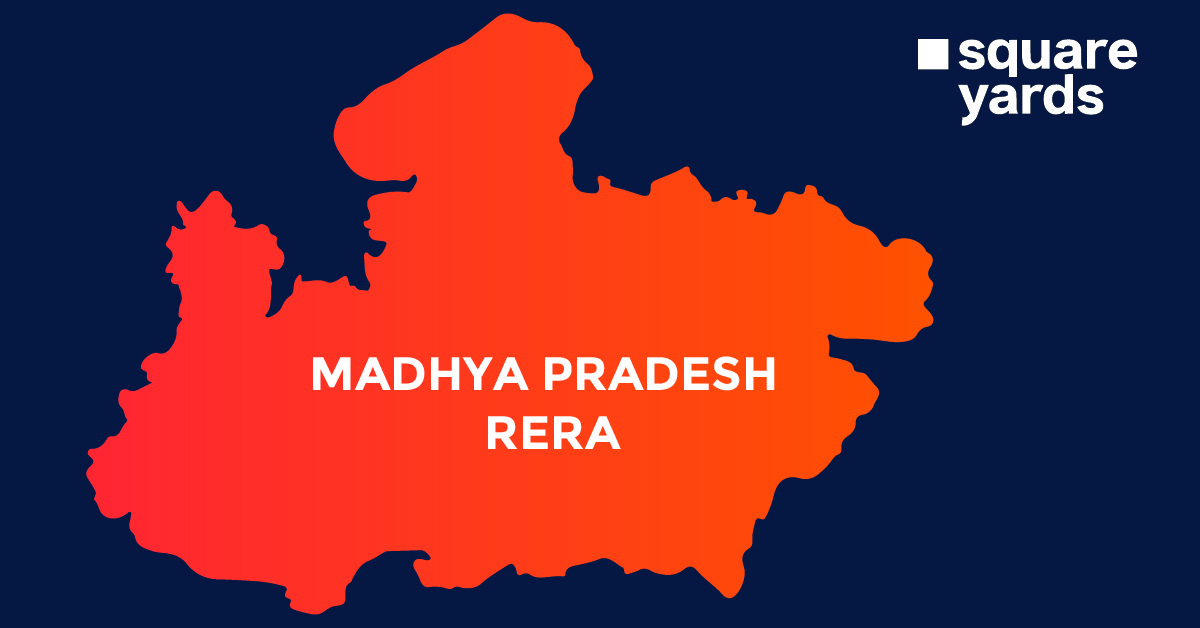If you have been weak in calculations or conversions, converting grams to ounces might seem a little daunting. You might also wonder why I even need to convert it in real life. Well, we might come across various situations, especially while checking the nutrition tables or when cooking where these conversions will come in handy. Just by knowing a simple formula, one can easily convert grams to oz, be it converting 150 g to oz or 50 g to oz.
Before we learn the formula and check a few examples, let us learn a little in detail about grams, and ounces and how similar or different they are.
What is a Gram?
We all know what “grams” is, don’t we? It is a unit used to measure weight and mass and is the 100th part of one metre. If we treat “grams” as a mass unit, as per the International System of Units, 1000 grams is equivalent to 1 kilogram. Grams is often abbreviated as “gm” or some just write it as “g”.
A gram is often used for weight measurement of lighter non-liquid objects, and we come across this during our grocery shopping. It is a measurement unit for weight and is used globally.
Current Use of Gram
Grams are used everywhere globally as it is a measurement unit for the weight measurement of non-liquid ingredients. Items that are less than one kilogram are often sold in grams. Pulses, vegetables, fruits and a lot more are often seen in packages of 100 g, 250 g, and 500 g. Also, most of the packed products need to add a nutrition label for every 100 g of that ingredient.
History of Gram
We use grams in our day-to-day life, but how and where did the word “gram” originate from? It is said that the word is derived from French and Latin words, namely “gramme” and “gramma”. Both these words mean light or small in weight. Hence, the name grams imply something light in weight.
What is Ounce?
An ounce is another unit of measurement used to measure the mass, volume or even weight of an object or a liquid. It is known to be derived from an Ancient Roman measurement unit called uncia. The common abbreviation used for ounce is oz, and it said that the use of this abbreviation can be dated back to the 1500s.
Current Use of Ounce
The unit ounce is mostly used in the US. You can find it on various food and postal packages, food packets, and various liquid bottles and packages. Another way of using an ounce is to calculate the mass of some of the most precious metals like gold, silver and platinum. This is called a troy ounce, and 1 troy ounce is equivalent to 31.1034768 gm.
History of Ounce
If the concept of ounces sounds interesting to you, you might be wondering about its origin. The word ounce was inspired by the Roman uncia, which is a measurement unit used by ancient Romans. The abbreviation was also taken from an Italian word called onza. Ounce, like grams, is also a very commonly used measurement unit in various countries, especially in the US.
Relationship between Gram and Ounce
The relationship between ounces and grams can be understood easily by understanding a simple formula. This formula helps to convert grams to oz with ease. As per mathematics, the relationship between grams and ounces is as follows.
1 Gram = 0.0353 Ounces and 1 Ounce = 28.3495 Grams
Just knowing this formula by heart can help you convert grams to ounces in no time.
How to Convert Grams to Ounces?
Now that we already know that both ounces and grams are used for the measurement of mass and weight, we will go further and see how we can convert gm to an ounce.
To convert grams to ounces, we need to multiply the value by 0.0353. Sound’s simple, isn’t it? Let’s have a look at a few examples to understand it better.
Formula for Converting Grams to Ounces
So now you know that there are 0.0353 ounces in a gram, here is the formula you can use to carry out the gm to oz conversion:
1 Gram = Ounce x 0.0353
Below are a few examples of converting Grams to Ounces. Take a look:
Example 1: Convert 50 Grams to Ounces
Solution 1: Using the above formula, we will get:
50 gm = (50 x 0.0353) = 1.7637 oz
Hence, 50 gm is equal to 1.7637 oz.
Example 2: Convert 150 g to oz
Solution 2: Just like above,
150 gm = (150 x 0.0353) = 5.29109 oz
Hence, 150 gm is equal to 5.29109 oz.
Example 3: Convert 200 Gm to Oz
Solution 3:
200 gm = (200 x 0.0353) = 7.05479 oz
Hence, 200 gm is equal to 7.05479 oz.
Example 4: Convert 250 Grams to Ounces
Solution 4:
250 gm = (250 x 0.0353) = 8.81849 oz
Hence, 250 gm is equal to 8.81849 oz.
Example 5: Convert 500 Grams to Oz
Solution 5:
500 gm = (500 x 0.0353) = 17.637 oz
Hence, 500 gm is equal to 17.637 oz.
Example 6: Convert 1000 Grams to Oz
Solution 6:
1000 gm = (1000 x 0.0353) = 35.274 oz
Hence, 1000 gm is equal to 35.274 oz.
Example 7: Convert 1200 Grams to Oz
Solution 7:
1200 gm = (1200 x 0.0353) = 42.32875 oz
Hence, 1200 gm is equal to 42.32875 oz.
Example 8: Convert 1800 Grams to Ounces
Solution 8:
1800 gm = (1800 x 0.0353) = 63.49313 oz
Hence, 1800 gm is equal to 63.49313 oz.
Example 9: Convert 2500 Grams to Ounces
Solution 9:
2500 gm = (2500 x 0.0353) = 88.1849 oz
Hence, 2500 gm is equal to 88.1849 oz.
Example 10: Convert 5000 Grams to Oz
Solution 10:
5000 gm = (5000 x 0.0353) = 176.3698 oz
Hence, 5000 gm is equal to 176.3698 oz.
Difference between Grams and Ounces
Let’s understand more about the units and the difference between them. While a gram is a measurement of weight and is equal to one 1000th of a kilogram, an ounce is a measurement of mass equal to 28.35 grams.
Learn about the differences between grams and ounces through the below-depicted table:
| Basis of Comparison | Grams (g) | Ounces (oz) |
| Abbreviation / Symbol | gm or g | oz |
| Definition | A gram is a unit to measure mass and weight equal to the cube of the 100th part of a metre. This mass unit in the metric system is defined as 1000th of a kilogram by the International System of Units. | Ounce is used for many different units of weight, mass or volume and is derived from the uncian, Ancient Roman unit of measurement. However, it is typically a unit for volume used to measure liquids. |
| Relation | 1 Gram = 0.035274 Ounce | 1 Ounce = 28.3495 Grams |
| Formula | 1 Gram = Ounce x 0.0353 | 1 Ounce = Gram x 28.3495 |
| Usage | A gram is used to measure the weight of extremely light objects. The current use of the unit is to measure non-liquid cooking ingredients as well as the items in grocery shopping throughout the world. | An ounce is currently used for measuring food portions and packaged foods, the areal density of paper and fabric, postal items, boxing gloves and more. |
Don’t miss It!
| Feet to Meter | Feet to Meters Conversion: Conversion Table, Examples |
| Feet to Centimeter | How to Convert Feet to Centimeter: Formula & Examples |
| Inch to Microinch | How to Convert Inch to Microinch: Formula & Examples |
| Cent to Square Feet | How to Convert Cent to Square Feet: Formula & Examples |
| Ton to Kilogram | How to Convert Ton to Kilogram: Formula & Examples |
| Cubic Meter to Liter | How to Convert Cubic Meter to Liter: Formula & Examples |
| Cent to Square Meter | How to Convert cent to sq m: Formula & Examples |
| Meters to Feet | How to Convert Meters to Feet: Formula & Examples |
Grams to Ounces Conversion Table
| Grams [G] | Ounces (OZ) | Grams to Ounces (G to OZ ) |
| 1 g | 0.035274 oz | 1 Grams is equal to 0.035274 Ounces |
| 2 g | 0.070548 oz | 2 Grams is equal to 0.070548 Ounces |
| 3 g | 0.105822 oz | 3 Grams is equal to 0.105822 Ounces |
| 4 g | 0.141096 oz | 4 Grams is equal to 0.141096 Ounces |
| 5 g | 0.17637 oz | 5 Grams is equal to 0.17637 Ounces |
| 6 g | 0.211644 oz | 6 Grams is equal to 0.211644 Ounces |
| 7 g | 0.246918 oz | 7 Grams is equal to 0.246918 Ounces |
| 8 g | 0.282192 oz | 8 Grams is equal to 0.282192 Ounces |
| 9 g | 0.317466 oz | 9 Grams is equal to 0.317466 Ounces |
| 10 g | 0.35274 oz | 10 Grams is equal to 0.35274 Ounces |
| 11 g | 0.388014 oz | 11 Grams is equal to 0.388014 Ounces |
| 12 g | 0.423288 oz | 12 Grams is equal to 0.423288 Ounces |
| 13 g | 0.458562 oz | 13 Grams is equal to 0.458562 Ounces |
| 14 g | 0.493836 oz | 14 Grams is equal to 0.493836 Ounces |
| 15 g | 0.52911 oz | 15 Grams is equal to 0.52911 Ounces |
| 16 g | 0.564384 oz | 16 Grams is equal to 0.564384 Ounces |
| 17 g | 0.599658 oz | 17 Grams is equal to 0.599658 Ounces |
| 18 g | 0.634932 oz | 18 Grams is equal to 0.634932 Ounces |
| 19 g | 0.670206 oz | 19 Grams is equal to 0.670206 Ounces |
| 20 g | 0.70548 oz | 20 Grams is equal to 0.70548 Ounces |
| 21 g | 0.740754 oz | 21 Grams is equal to 0.740754 Ounces |
| 22 g | 0.776028 oz | 22 Grams is equal to 0.776028 Ounces |
| 23 g | 0.811302 oz | 23 Grams is equal to 0.811302 Ounces |
| 24 g | 0.846576 oz | 24 Grams is equal to 0.846576 Ounces |
| 25 g | 0.88185 oz | 25 Grams is equal to 0.88185 Ounces |
| 26 g | 0.917124 oz | 26 Grams is equal to 0.917124 Ounces |
| 27 g | 0.952398 oz | 27 Grams is equal to 0.952398 Ounces |
| 28 g | 0.987672 oz | 28 Grams is equal to 0.987672 Ounces |
| 29 g | 1.022946 oz | 29 Grams is equal to 1.022946 Ounces |
| 30 g | 1.05822 oz | 30 Grams is equal to 1.05822 Ounces |
| 31 g | 1.093494 oz | 31 Grams is equal to 1.093494 Ounces |
| 32 g | 1.128768 oz | 32 Grams is equal to 1.128768 Ounces |
| 33 g | 1.164042 oz | 33 Grams is equal to 1.164042 Ounces |
| 34 g | 1.199316 oz | 34 Grams is equal to 1.199316 Ounces |
| 35 g | 1.23459 oz | 35 Grams is equal to 1.23459 Ounces |
| 36 g | 1.269864 oz | 36 Grams is equal to 1.269864 Ounces |
| 37 g | 1.305138 oz | 37 Grams is equal to 1.305138 Ounces |
| 38 g | 1.340412 oz | 38 Grams is equal to 1.340412 Ounces |
| 39 g | 1.375686 oz | 39 Grams is equal to 1.375686 Ounces |
| 40 g | 1.41096 oz | 40 Grams is equal to 1.41096 Ounces |
| 41 g | 1.446234 oz | 41 Grams is equal to 1.446234 Ounces |
| 42 g | 1.481508 oz | 42 Grams is equal to 1.481508 Ounces |
| 43 g | 1.516782 oz | 43 Grams is equal to 1.516782 Ounces |
| 44 g | 1.552056 oz | 44 Grams is equal to 1.552056 Ounces |
| 45 g | 1.58733 oz | 45 Grams is equal to 1.58733 Ounces |
| 46 g | 1.622604 oz | 46 Grams is equal to 1.622604 Ounces |
| 47 g | 1.657878 oz | 47 Grams is equal to 1.657878 Ounces |
| 48 g | 1.693152 oz | 48 Grams is equal to 1.693152 Ounces |
| 49 g | 1.728426 oz | 49 Grams is equal to 1.728426 Ounces |
| 50 g | 1.7637 oz | 50 Grams is equal to 1.7637 Ounces |
| 51 g | 1.798974 oz | 51 Grams is equal to 1.798974 Ounces |
| 52 g | 1.834248 oz | 52 Grams is equal to 1.834248 Ounces |
| 53 g | 1.869522 oz | 53 Grams is equal to 1.869522 Ounces |
| 54 g | 1.904796 oz | 54 Grams is equal to 1.904796 Ounces |
| 55 g | 1.94007 oz | 55 Grams is equal to 1.94007 Ounces |
| 56 g | 1.975344 oz | 56 Grams is equal to 1.975344 Ounces |
| 57 g | 2.010618 oz | 57 Grams is equal to 2.010618 Ounces |
| 58 g | 2.045892 oz | 58 Grams is equal to 2.045892 Ounces |
| 59 g | 2.081166 oz | 59 Grams is equal to 2.081166 Ounces |
| 60 g | 2.11644 oz | 60 Grams is equal to 2.11644 Ounces |
| 61 g | 2.151714 oz | 61 Grams is equal to 2.151714 Ounces |
| 62 g | 2.186988 oz | 62 Grams is equal to 2.186988 Ounces |
| 63 g | 2.222262 oz | 63 Grams is equal to 2.222262 Ounces |
| 64 g | 2.257536 oz | 64 Grams is equal to 2.257536 Ounces |
| 65 g | 2.29281 oz | 65 Grams is equal to 2.29281 Ounces |
| 66 g | 2.328084 oz | 66 Grams is equal to 2.328084 Ounces |
| 67 g | 2.363358 oz | 67 Grams is equal to 2.363358 Ounces |
| 68 g | 2.398632 oz | 68 Grams is equal to 2.398632 Ounces |
| 69 g | 2.433906 oz | 69 Grams is equal to 2.433906 Ounces |
| 70 g | 2.46918 oz | 70 Grams is equal to 2.46918 Ounces |
| 71 g | 2.504454 oz | 71 Grams is equal to 2.504454 Ounces |
| 72 g | 2.539728 oz | 72 Grams is equal to 2.539728 Ounces |
| 73 g | 2.575002 oz | 73 Grams is equal to 2.575002 Ounces |
| 74 g | 2.610276 oz | 74 Grams is equal to 2.610276 Ounces |
| 75 g | 2.64555 oz | 75 Grams is equal to 2.64555 Ounces |
| 76 g | 2.680824 oz | 76 Grams is equal to 2.680824 Ounces |
| 77 g | 2.716098 oz | 77 Grams is equal to 2.716098 Ounces |
| 78 g | 2.751372 oz | 78 Grams is equal to 2.751372 Ounces |
| 79 g | 2.786646 oz | 79 Grams is equal to 2.786646 Ounces |
| 80 g | 2.82192 oz | 80 Grams is equal to 2.82192 Ounces |
| 81 g | 2.857194 oz | 81 Grams is equal to 2.857194 Ounces |
| 82 g | 2.892468 oz | 82 Grams is equal to 2.892468 Ounces |
| 83 g | 2.927742 oz | 83 Grams is equal to 2.927742 Ounces |
| 84 g | 2.963016 oz | 84 Grams is equal to 2.963016 Ounces |
| 85 g | 2.99829 oz | 85 Grams is equal to 2.99829 Ounces |
| 86 g | 3.033564 oz | 86 Grams is equal to 3.033564 Ounces |
| 87 g | 3.068838 oz | 87 Grams is equal to 3.068838 Ounces |
| 88 g | 3.104112 oz | 88 Grams is equal to 3.104112 Ounces |
| 89 g | 3.139386 oz | 89 Grams is equal to 3.139386 Ounces |
| 90 g | 3.17466 oz | 90 Grams is equal to 3.17466 Ounces |
| 91 g | 3.209934 oz | 91 Grams is equal to 3.209934 Ounces |
| 92 g | 3.245208 oz | 92 Grams is equal to 3.245208 Ounces |
| 93 g | 3.280482 oz | 93 Grams is equal to 3.280482 Ounces |
| 94 g | 3.315756 oz | 94 Grams is equal to 3.315756 Ounces |
| 95 g | 3.35103 oz | 95 Grams is equal to 3.35103 Ounces |
| 96 g | 3.386304 oz | 96 Grams is equal to 3.386304 Ounces |
| 97 g | 3.421578 oz | 97 Grams is equal to 3.421578 Ounces |
| 98 g | 3.456852 oz | 98 Grams is equal to 3.456852 Ounces |
| 99 g | 3.492126 oz | 99 Grams is equal to 3.492126 Ounces |
| 100 g | 3.5274 oz | 100 Grams is equal to 3.5274 Ounces |
FAQ’s about Grams to Ounces Conversion
Q1. How much does 1 oz weigh in grams?
1 ounce is equal to 28.3495 grams.
Q2. How much do 2 grams weigh in ounces?
2 grams is equal to 0.0705479 ounces.
Q3. Are 200 grams equal to 8 ounces?
No. 200 grams is equal to 7.05479 ounces.
Q4. How much are 8 ounces in grams?
8 ounces is equal to 226.796 grams.
Q5. Which is bigger, 1 gram or 1 ounce?
1 ounce is quite bigger than 1 gram since it is equal to almost 28.35 grams.
Q6. How much does 500 oz weigh in grams?
Since 1 oz is equal to 28.3495 grams, 500 oz would be (500 x 28.3495) grams which comes out to 14174.8 grams.
































